Not E3 2022: Summer Game Fest Opening, PC Gaming Show
By gamer_152 2 Comments
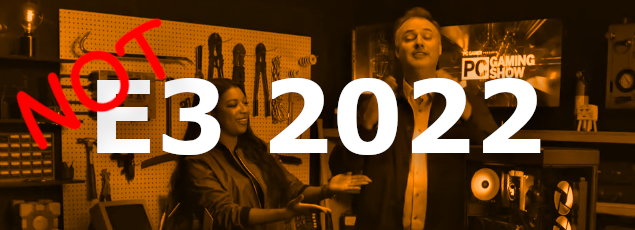
There is a story about games marketing and reporting that would be very easy for me to tell here. One that would say that with publishers' budgets growing like bamboo and the internet acting as the distribution network for ever-more media, the games industry has outgrown the need for a glut of summer showcases. You no longer have to gather people on the ground in one location to have eyeballs on your product, so you don't need to set up a booth or a live stage in California during the month of June. You could stream out a reel of trailers in spring, autumn, or whenever else works for you. Despite the common-sense logic of that argument, there is still an oasis of games briefings sat out here in the summer heat.
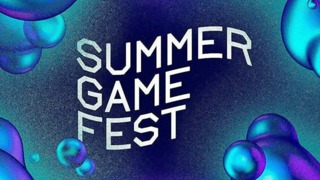
E3 is taking a bye for 2022. Yet, even during this hiatus, we still got the Microsoft conference, Sony's State of Play, the Summer Game Fest opening, the Day of the Devs, the PC Gaming Show, Devolver Direct, Netflix Geeked Week, the Tribeca Games Spotlight, Sonic Central, the Guerilla Collective, Wholesome Games Direct, the Future Games Show, the Capcom Showcase, and whatever you could find whirring away on the festival floor. People are still eagerly awaiting a deluge of new game announcements every summer, and this outpouring of demos and trailers makes sense in the context of the modern web. More distribution channels for your game news also means a more crowded field. Therefore, it becomes difficult to be heard above the din, and the best bet that many smaller developers and publishers have to be recognised is to band together, joining their voices into one booming choir. Each of the smaller showcases in this meta-E3 also serves to market the others, penetrating the public consciousness with a potency none of them could achieve alone.
However, because there's this rabble of games yelling at you from so many directions, it feels impossible to absorb them all. If I burned the midnight oil, I could describe every game at Keigh3 to you, but eventually, the part of my brain that produces meaningful observations shuts off. I go from telling you that "F1 Manager is proof that you don't always have to use the same mechanics to explore the same subject matter" to farting out "I dunno, this game has cubes in it". I never try to cover every game, but for the sake of quality, I can't try to cover every show, either. So, I've whittled my focus down to the headline acts and a few of the attractions around the edges. This time, we're going to be looking at the Summer Game Fest Opening and PC Gamer's PC Gaming Show.
The Summer Game Fest Opening

Outside of Sony and Microsoft's steams, this kickoff was easily the most blockbuster of all the briefings. Its Modern Warfare II demo was one of the most tragically unimaginative sequences at these previews. No one needed ten minutes to understand a game where you use iron sights firing and grenades to snuff out opponents. The stream ending on The Last of Us Remake also suggested a misplaced confidence from Sony. The financial downside of making one of the most graphically accomplished games of its generation is that there's not much room for visual improvement. The premise of a remaster and then a full-priced remake within the same decade as an original would be greedy for any game but carries a particular redundancy for this technical tour de force. I keep looking at those "Before and after" shots and feeling like I must be losing my mind because neither set looks better than the other to me. They're just different.
I also can't help but feel that the Rock has burnt through most of his goodwill by this point. When he first entered the cinematic arena, watching the wrestling guy tackle goofy and even slightly self-deprecating roles was pleasantly unexpected. But it doesn't have the same charm when he's in every other family film under the sun, and he's sending out pre-recorded adverts for his movie and his energy drink.

Highwater depicts a believable future on a planet of rising sea levels. The bread and butter of the post-apocalyptic genre is characters trying to jury rig together the scraps of civilisation to get by. Highwater, on the other hand, imagines a world where some people foresaw the collapse and developed some solutions to living without the comforts of the old world. Comforts like the ground.
The original Goat Simulator didn't click with me. Its novelty felt like inappropriate compensation for its jank, and we were lousy with joke "simulator" games at the time. I was also put off by it being the go-to entertainment product for a lot of those late 00s YouTube guys who made a living by shouting into the camera. But in retrospect, maybe I was a little hard on Goat Simulator. It makes sense that a game about absurd destruction might also be falling apart itself. I'd definitely grab the sequel by the horns and give it another go-around.
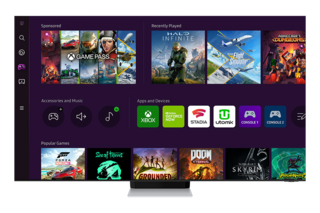
It wasn't the most memorable of product spots, but the Samsung TVs shown at this event make a scary amount of sense. In my Sony recap, I mentioned how companies have been dismantling hardware as a barrier to access media. In music, you no longer need a dedicated CD or MP3 player because you can subscribe to Spotify or Last.fm right on your PC or phone. Film no longer needs to be seen in theatre or even via a Blu-Ray player when you can stream Netflix or Hulu directly into your monitor. And for a while, we've been talking about Xbox Game Pass and PlayStation Plus Game Catalog as video game equivalents to those subscription services. Yet, to make full use of those video game libraries, you still need dedicated hardware: the very thing that the other media industries have phased out. For a true equivalent of Apple TV or Spotify, the media pipeline has to come straight into the display, and that's what Samsung is working on. That's not to say that, in their current state, those computer game subscription services are full replacements for a games console, especially not for us aficionados. Still, the erasure of the console is a plausible future, and Samsung's products are another step towards it.
Metal: Hellsinger scans for me in that shooter games often have a rhythm already, just not one the player must adhere to as stringently as they do in a music game. Metal is staking much of its success on tracks made by established artists specifically for some entertainment software. That's a gamble because such donated songs aren't usually bangers. Not to say that Hellsinger couldn't break the pattern, but there are very few people who perk up at the mention of Paul McCartney's contribution to the Destiny OST or who have Skrillex's Kingdom Hearts song on repeat. Yet, I suspect that the more sizeable challenge for Metal's devs will have been ensuring that the music and shooting complement each other rather than struggling against each other. Songs and non-rhythm games often don't dance to the same beat, but then experiences like Crypt of the Necrodancer have worked out how to have the two meet in the middle.

Saint's Row showed up looking a little muddy but remained in touch with its fans by reestablishing the series' legendary character creator. One of Gat Out of Hell's biggest blunders was robbing the player of the ability to cosmetically customise their avatar. If you've got a game about spreading your wings and acting as cool and goofy as possible in the story, traversal, and combat, that agency should extend to your fashion. From a business perspective, releasing the character creator ahead of time is a devilishly clever move. It's free to make your hero, so why not jump in? However, you're probably going to be dumping a lot of time and personal investment into that model, which gives you a reason to buy the game proper.
The PC Gaming Show
While the PC Gaming Show has traditionally been home to more technical and specialist media than we've seen at other briefings, it's also the most commercial of the set. It's chock full of adverts for PC components and accessories, and that's probably because the show's organisers can't dip into the deep pockets of an affluent publisher. When a Capcom or a Nintendo are carnival barking for their games, they're happy to foot the bill because they'll make the money back when people buy those products. But at an event like the PC Gaming Show, you have many independent developers who can't pay the exhibitor costs, so hardware firms like Corsair and Razor do instead.
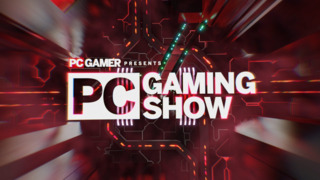
Guerilla Collective and the Tribeca Games Festival are also reliant on private sponsors. Wholesome Direct is classy about it, but even they need to sell some goods to stay afloat. It's just that the exhibitors are going to try and tailor the products to the audience. Where PC Gamer figures its viewers would be happier with some new sticks of RAM, Wholesome Games' speed is more t-shirts covered in gleeful little critters.
I do, however, think the PC Gaming Show is much improved for cutting out the sci-fi comedy plotlines and getting straight to the meat. A speculative thriller shell worked for Devolver Digital, but where that show felt a little more like a spoof of Terminator and Network, the PC Gaming Show resembled the ever-cringy Final Space. That's all over now, giving more time to get down to business with a title like Tactical Breach Wizards.
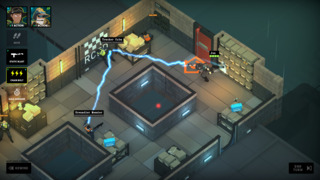
One effective way to get people excited about your game is to show them a move that they can immediately understand and always looks cool to perform. Anger Foot has kicking doors into gangsters, Rumbleverse has elbow-dropping wrestlers off of buildings, and Tactical Breach Wizards has shunting enemies off of the edge of the map. Floating island grids are usually assumed to be framing devices for the purposes of play. This strategy title turns them into diegetic realities where tension ramps up as units approach the precipitous edge.
The Invincible wants to draw players in with a central mystery and some restrained pacing. However, a narrative still needs some payoff for the people who stick with that mystery and sink into that pacing. For the life of me, I can't tell you what the payoff in this trailer was. Basic questions about characters like "What do they want?" or "How do they achieve their goals?" usually get answered even in a bad book or film, but it's surprising how often video games don't provide a response to them. The Invincible's demo was a prime example.
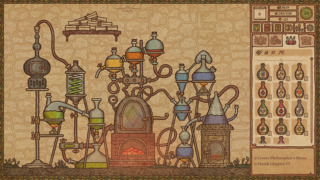
Game developers often create expansive worlds full of many different kinds of people. But how much does that mean for an interactive medium if we can only play a small subset of those people? Potion Craft imagines us not as a chosen one, taking our blade or staff to the neck of an evil villain, but as an industrious apothecary, providing patrons with any drink or draught they could need. I would like to slurp that shit down.
Picture Junji Ito drawing the art for Habbo Hotel, and that's about as close as you're going to get to Decarnation. Pixel art often impresses me because while the techniques behind painting and sculpting can seem inscrutable, it's easier to see the bones of pixel art, to understand how the creator went from a blank canvas to a rich and evocative image. Decarnation has that artistic richness in spades.
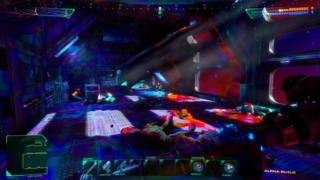
We also saw System Shock, as in, I'm System Shocked there aren't more people talking about this. While the original game's assertive coloured lighting was a deft display of the era's shaders, it's a little overbearing in a modern context. This RGB overdrive is too colourful to conjure the atmosphere of sterile hostility that SHODAN's world is meant to represent. It was also corny to hear Spector and Plott do the "the world is like SHODAN with everyone on their phones" bit. To be fair, I think narratives of isolation and threat from AI still resonate because we're all used to being trapped in impersonal systems, adversarial to us. Toxic tech in the real world often pretends to be our best friend, which gives SHODAN an almost comforting honesty.
When I discussed As Dusk Falls, I mentioned how its combination of higher and lower fidelity animation was unsettling. However, unseating the player isn't a bad approach for every game. One aspect that draws me towards the horror genre is that a lot of creative decisions that would be "against the rules" in other circumstances fly in this darker tonal context. Demonschool contrasts pointillist low framerate characters against smooth-moving high-detail monsters. It gives the abominations that Jason & the Argonauts claymation creepiness and also effectively communicates that these are creatures from a higher plane. Demonschool is not in the Lovecraft aesthetic but, nonetheless, captures one of Lovecraft's most essential themes.
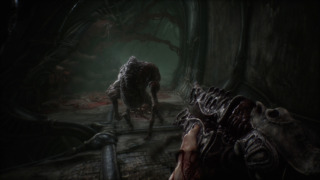
You wouldn't know it from watching the Microsoft conference, but the representatives at the PC Gaming Show were clear: Scorn is not a shooter. Hearing about the cautiousness required to play and the graveyard of a setting, I'm not even sure Scorn is an action game, and that seems like something more prospective players should be aware of. A title like The Wandering Village represents the positive version of symbiosis: the comforting idea that we exist in sync with the land we live off of, and so we're nurturing each other and part of something greater than ourselves. Scorn is the disturbing side of symbiosis: the need to connect yourself to whatever world you exist in, to have its products flow in and out of you, even if that world disgusts and repels you. You become another mechanism. Another lever, another switch, and as Scorn lacks any dialogue, we shouldn't expect to be humanised by our speech either.
At a time when hulking, plodding protagonists in shooters were associated with keeping your head down and slowly moving up the battlefield, Warhammer 40,000: Space Marine dropped its pod into the scene with a very different idea. Now, your bulky super soldier was expected to react aggressively, ripping and tearing a path through the battlefield. In its spot at the PC Gaming Show, Tim Willits himself implied that the foot-forward abandon of Space Marine inspired Doom (2016). Space Marine II looks to resolve its father's aching eleven-year cliffhanger and provide a wall of flesh to shoot where its predecessor was all about individual targets. The brutish morons of the Ork army are swapped out for the atavistic beasts of the Tyranids.
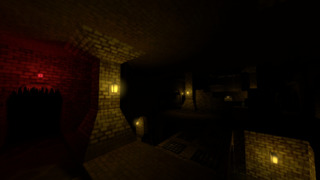
New Blood is a publisher with one of the most distinctive voices on the indie circuit right now. Where Devolver made their name with fast-paced synthwave action games, New Blood is forging a similar path for throwbacks to 90s FPSs. Gloomwood, just one of the titles loaded into their magazine here, looks like if Doom had taken place in a medieval village instead of moon hell.
You don't have a mature creative form until you're seeing fan art in it, so consider it a rite of passage that the PC Gaming Show closed on a mod for Half-Life: Alyx. I'm honestly surprised that Valve is letting the team behind Half-Life: Alyx: Levitation move ahead with their expansion to their 2020 industrial thriller. It is proof that if you're a video game publisher with more money than God, you don't have to snipe down every use of your IP outside of your control. Levitation captures the spirit of the existing Half-Life games by setting its action in raw, utilitarian environments, but finds some locations that have thus far gone unused or little used in the Half-Life canon. You can see a dingy building site and a yellow-garbed quarantine area, not unlike some of the apartment interiors in The Division. Even if it didn't come from inside an established studio, Levitation looks to be approaching professional grade.
___
That is two more Keigh3 presentations down, but we're not done yet. Next time, I'll be tackling Wholesome Direct, Devolver's show, and a little extra surprise. Thanks for reading.